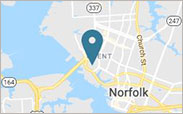
Doctor of Medicine, MD
Master clinical skills and gain foundational knowledge to treat patients in a program that puts community service first.
Doctor of Medicine
Learn more about the program.
Meet with a program representative.
Thank you
Why choose EVMS?
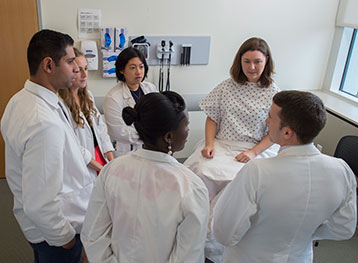
See patients on Day 1
Spend your first day working with standardized patients in the Sentara Center for Simulation and Immersive Learning.
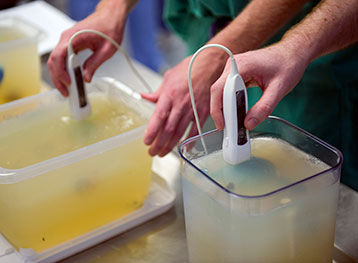
Early ultrasound training
Use the field’s leading technologies in your first weeks with our robust ultrasound curriculum.
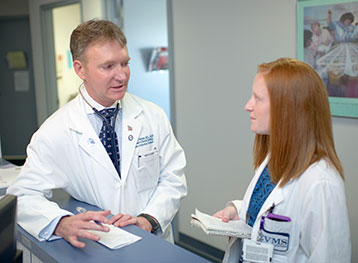
Varied training environments
Present and take an active role in rounds while working with diverse patient populations at several hospital locations.

See patients on Day 1
Spend your first day working with standardized patients in the Sentara Center for Simulation and Immersive Learning.

Early ultrasound training
Use the field’s leading technologies in your first weeks with our robust ultrasound curriculum.

Varied training environments
Present and take an active role in rounds while working with diverse patient populations at several hospital locations.

See patients on Day 1
Spend your first day working with standardized patients in the Sentara Center for Simulation and Immersive Learning.

Early ultrasound training
Use the field’s leading technologies in your first weeks with our robust ultrasound curriculum.

Varied training environments
Present and take an active role in rounds while working with diverse patient populations at several hospital locations.
Ready to start your career at a medical school committed to serving the community?
Community-Engaged Learning Initiatives
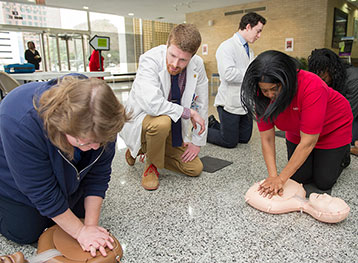
First Response
Aimed primarily at cardiac and stroke challenges in Eastern Virginia, these initiatives focus on first response.
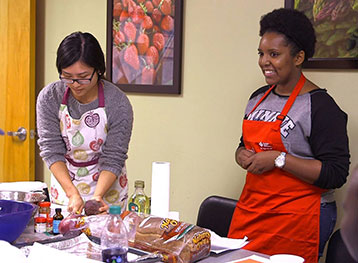
Nutrition and Exercise
Diabetes and obesity are two prevalent issues in our region. Initiatives in this service pathway focus on nutrition and exercise.
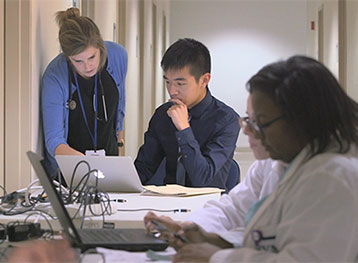
Health Equity
Initiatives in this pathway focus on those who do not readily have access to healthcare.

First Response
Aimed primarily at cardiac and stroke challenges in Eastern Virginia, these initiatives focus on first response.

Nutrition and Exercise
Diabetes and obesity are two prevalent issues in our region. Initiatives in this service pathway focus on nutrition and exercise.

Health Equity
Initiatives in this pathway focus on those who do not readily have access to healthcare.

First Response
Aimed primarily at cardiac and stroke challenges in Eastern Virginia, these initiatives focus on first response.

Nutrition and Exercise
Diabetes and obesity are two prevalent issues in our region. Initiatives in this service pathway focus on nutrition and exercise.

Health Equity
Initiatives in this pathway focus on those who do not readily have access to healthcare.
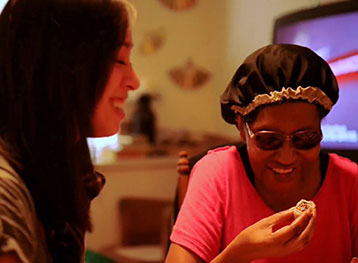
Older Adults and Individuals with Chronic Illnesses
Older adults represent a rapidly growing demographic in Eastern Virginia. Initiatives in this pathway focus on older adults and individuals with chronic illnesses or disabilities.
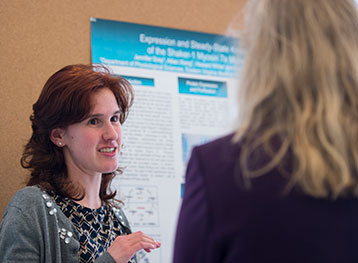
Mental Health
Close to 20% of adults in Virginia having been diagnosed with some type of mental health condition and approximately 5% are living with serious mental health condition.
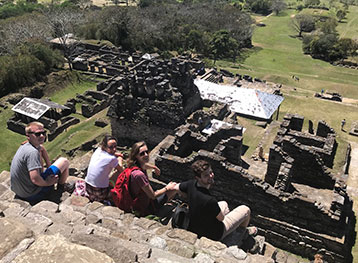
Global Health Equity
Earn a Spanish Bilingual Clinical Certification with Medical Spanish or a French Clinician Certification with Medical French, or work with local refugees in Refugee Health.

Older Adults and Individuals with Chronic Illnesses
Older adults represent a rapidly growing demographic in Eastern Virginia. Initiatives in this pathway focus on older adults and individuals with chronic illnesses or disabilities.

Mental Health
Close to 20% of adults in Virginia having been diagnosed with some type of mental health condition and approximately 5% are living with serious mental health condition.

Global Health Equity
Earn a Spanish Bilingual Clinical Certification with Medical Spanish or a French Clinician Certification with Medical French, or work with local refugees in Refugee Health.

Older Adults and Individuals with Chronic Illnesses
Older adults represent a rapidly growing demographic in Eastern Virginia. Initiatives in this pathway focus on older adults and individuals with chronic illnesses or disabilities.

Mental Health
Close to 20% of adults in Virginia having been diagnosed with some type of mental health condition and approximately 5% are living with serious mental health condition.

Global Health Equity
Earn a Spanish Bilingual Clinical Certification with Medical Spanish or a French Clinician Certification with Medical French, or work with local refugees in Refugee Health.
Student life
Faculty-student relationship
Our faculty are committed to student excellence. Our third-year students meet one-on-one with our vice dean to receive career guidance.
Wellness program
Our student and physician wellness program promotes resilience in our graduates throughout their medical careers.
Care-based teaching
We value practical application in teaching; our lessons are placed in the context of real-world practice at every opportunity.
Graduation rates
Nearly 9 out of 10 EVMS medical students graduate on time in four years.
Meet our faculty
Need a step up? Prepare to matriculate into medical school with our one- or two-year Medical Master’s programs.









